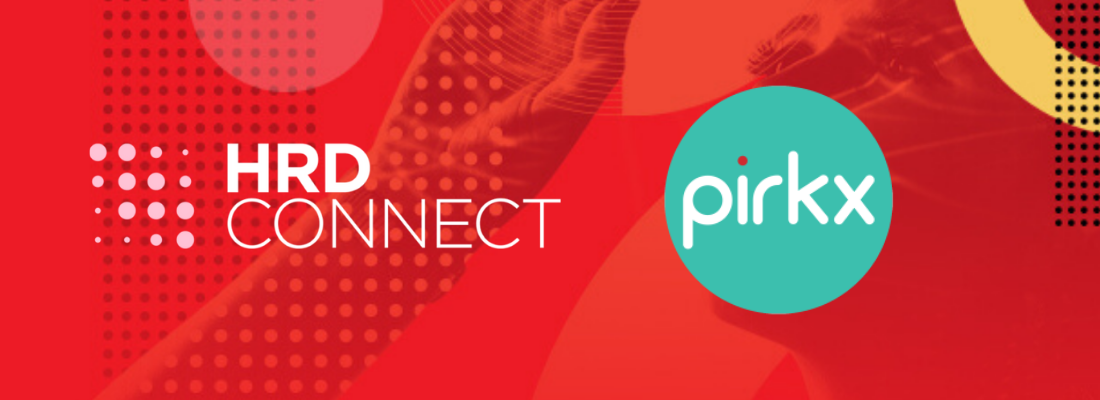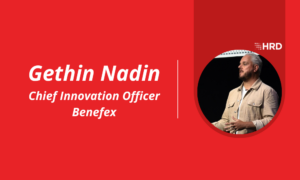Interview: Stella Smith on wellbeing, benefits, and the Pirkx journey
- 10 Min Read
In the modern age, wellbeing and benefits are core factors in any HR strategy, but when it comes to the rapidly growing gig economy this is sadly not the case. However, Pirkx are a UK-based fintech startup on a mission to defy this. To find out more, we sat down with founder and CEO, Stella Smith.
- Author: Sam Alberti
- Date published: Jul 30, 2020
- Categories

The world’s gig economy is expanding at an alarming rate. Research suggests that in the UK alone, the number has doubled in recent years; now at over five million.
What’s more, 1/10 workers in the UK now partake in digital platform work at least once a week, and nearly 2/3 of this number are aged 16-34.
This can largely be attributed to the meteoric rise of website or app-based employment. Uber, Deliveroo, Handy and Upwork all stand out as key players.
Though less than sufficient pay is the standout issue here (87% of UK gig economy workers reported earning less than £10,000 in the 12 months prior), these workers are often bereft of the support, protection and representation that tends to accompany permanent employment.
By extension, company perks, benefits and rewards also tend to be out of the question for these employees.
However, Pirkx is a UK-based employee benefits provider striving to defy this trend through its fully digital, self-service platform.
Founded in 2018, Pirkx’s mission is to support the ‘contingent workforce’ by offering them a medium through which they can access health, wellbeing, and financial wellbeing-oriented benefits. In 2020’s troubling climate, this could prove to be crucial.
In light of the organization’s recent growth and expansion, Sam Alberti, reporter, HRD Connect sat down with Pirkx Founder & CEO, Stella Smith, to talk origins, the story so far, and future plans.
By addressing wellbeing of the contingent workforce, you’ve clearly found a gap in the market. However, Pirkx strikes me as a company with a strong, tangible ethos, and that comes across as being perhaps more important. Would you agree?
Absolutely. So from my perspective the first question is, well, what is wellbeing and why is it important? And actually, if I’m really honest, it’s all quite subjective, and it feels quite gray as a statement. So I wanted to try and define what wellbeing is and what we were trying to achieve. We took it back to the dictionary definition of wellbeing: the state of being happy, healthy or comfortable. And that’s quite important because being happy and healthy has come to the forefront of all our minds in recent times. Historically, wellbeing might have been considered a soft benefit, but I think everyone appreciates now that it’s a hard benefit, because you need happy, healthy workers to have a productive workforce.
The next question is, if your objective is to make happier, healthier humans, then then how do you do that? Well, there’s five broad categories: physical and mental health, financial health, education, social interaction, and reward and recognition. We aim to hit all of these areas, but the unique thing about what Pirkx does is, because you can sign up yourself and the platform is self-service, it means we don’t need to do as much, so therefore, we don’t need to charge as much. So for me, the key is really stripping out the bits that don’t relate to contingent workers, and as a result, we have a load of stuff that actually can support happier, healthier, contingent workers now that we can use technology to deliver.
There’s an irony at play in the sense that, with COVID, many businesses would be reluctant to invest in new technologies. However, something like Pirkx may actually be more important now than ever. Do you think there’s an argument to be made for that?
From a certain perspective, definitely. As you say, corporate spend may be curtailed, because organizations have to focus on the things that would traditionally be considered important, but at the end of the day, if the people aren’t there in the first place, that top line will obviously cease to exist.
If you buy into the fact that happy healthy people make a productive business, then for me, there is very reasonable scope for organizations to invest in something like this. Whether or not everybody is on board with that statement, I don’t know. But what I do know is it’s our job to try and make it at least accessible for people to make the decision. And so I think that in summary, even though corporate spend could fall, our target audience’s propensity to buy probably increases, because wellbeing becomes more important during this time.
As a co-founder of another health and wellbeing company and a board member at a human rights organization, it seems that you have a humanistic, person-centered approach to business. Would you agree, and is that something that you think really lends itself to the Pirkx business model?
Absolutely. And where it where it comes into play with Pirkx is with this question: is it a right that everybody should have access to basic healthcare services? Do you believe that everyone has a right to access financial education? From my perspective, I would love everybody in the world to have that. So, we have business that allows SMEs and contingent workers to get that, if we go and build Pirkx Africa, which is our intention, we can get affordable healthcare services into an audience that doesn’t have access to it right now, and for me, that has a big social impact.
Equally, we’ve intentionally cut out things like gamification when it comes to our services. We just added in pure cashback. So we have 2,500 retail offers which puts cashback into you Pirkx account as you spend. Now, you could just consider that a discount, but alternatively, you could consider that as the concept of ‘sound money’, which means that you haven’t had to earn it, and you were going to spend it anyway. So you make your spending go further. To me, you could either view this as a load of discounts attached to an employee benefit proposition, or you could see it as a way of extending household spend.
How about the platform itself? Could you summarize how it works?
So you can either join if you’re a contractor, a self-employed person, or as a whole company. And once you’re in, you then have access to all this stuff. So instantly, you get access to the 24/7 doctor service and you get things like discounted gyms, and things to support you with your financial wellbeing. We’ve also recently added a 24/7 counseling service for you and your household, for people over the age of 18. I think at a time like this, that’s important. So, I mean, it’s as simple as that. Click the button, join. Once you’re in, you get access to all of this stuff.
In terms of redeeming discounts, we’ve got three methods. First, you can just click through and shop online at the retailer – you don’t need to go back to your Pirkx account, it just magically drops in, usually within 72 hours, and then you can send it to the bank account of your choice. The other two ways are what I considered actually to be slightly more old-fashioned, but they’re really popular! So, you can get a physical discount card like a gift voucher, and you can reload it, and you can use that in certain retailers. The third option is that you can get an instant digital code that does the same thing.
If you’re a corporate client, it’s slightly different – when you first join, you land on a dashboard. And then you can curate what you want for your team. This option allows you real flexibility as a HR leader, because you can choose to pay for it as an organization, or you can actually send it out on a self-pay basis. So, imagine a very small business that can’t find the 45 pounds per person per year – what they can still do is curate it and send it out to their workers, and so there’s a way that the individual can still get access.
And moreover, when you sign in as a corporate, you can brand it. So you can change the logo, change the colors, pick and choose from our discounts. I think that the real benefit to companies is you can make it your own, and you’re able to do it in minutes so you don’t need any help.
So having recently hit a few milestones and passed two years as a company, what’s the plan now? What does the future hold for Pirkx?
So in the UK we currently cover health and wealth, and in Australia, we cover all five of those wellbeing pillars that I mentioned before (health, wealth, recognition, education and social interaction). Our job now is to bring that skin from Australia back to the UK, and I think that we can make really significant inroads into covering all of those five pillars. Our job now is to open up the tin and look in and see if there’s anything in there that’s missing. You know, is there anything in there that we could do better? And if there is, Well, then let’s get on and do it. It’s quite simple.
An interesting point on that is we recently spoke to the HR team at a very large organization with some 400,000 employees worldwide, and we said, ‘what do you do from a benefits perspective’? And they reeled off the creme de la creme of private medical insurance, amazing pension contributions, diversity policies, inclusion policies, you name it. They really put people at the heart of what they did and. And then we ask them, ‘so what benefits do you have for contract workers, and how do you attract or retain or engage those people and bring them into your culture and values?’ And the answer was: ‘the bare legal minimum’. And if we look at the trends and the stats, it shows you that far more people will be contractors or working flexibly as we progress through the years ahead. So I think at Pirkx, we need to react to that.
In terms of how far we grow, we want to impact a million people positively by 2025. That’s a huge statement to make. And do we know whether we’ll achieve it or not? No, we don’t. But it’s a good way of looking at the world. And you know what? With what we’ve done so far, I wouldn’t rule it out. I think we sit in a good position to try and leverage the stuff we’ve learned so far.
We also want to launch Pirkx Africa, and in fact, we’ve hired the head of Africa already. We genuinely have a want to try and create something viable in a different kind of economy. We’ve actually built a model to tell us where we can be most impactful, and Deloitte kindly helped us out with building this. So we’ll probably follow that and keep tinkering with it, and I think eventually, we’ll be in as many countries as we can make impact in, where there’s a large percentage of the workforce that are contingent or working for SMEs.
The whole point is, if any of my team are doing anything that doesn’t make a human being happier or healthier, they shouldn’t be doing it.









